- Home
- Dusty Richards
Wulf's Tracks Page 14
Wulf's Tracks Read online
Page 14
“I did.” Charlie stepped forward. “Wulf Baker is my friend and what he says is the truth.”
The big man nodded and bent over to lift the man up by his shoulder. “You all right?”
“Go ask her if she is all right,” Wulf said, pointing at the woman crying on the ground. “She was the one he beat up on.”
The man shot a cold glance back at Wulf. “Are you an elder here?”
“No, but I damn sure don’t stand for men beating women with sticks.”
“I can see that.”
“Who are you?”
“I am the subchief—Leonard Swift.”
“Then you do what you want. I’d tie him to a tree and do what they’re going to do to a horse thief in the morning—whip him.”
“You speak mighty big for a boy.”
“I ain’t a damn boy, that’s for sure.”
Swift nodded. He half turned to a woman on her knees who was cleaning the beaten woman’s face with a towel. “Is she all right?”
“I think so.”
Swift held his hands up. “Everyone go back to dancing. Good night, Mr. Wulf.”
With a turn on his boot heels, Wulf started for camp and his things. Charlie caught up on one side and Mary Ann on the other.
“He didn’t mean for you to leave,” she said, pulling on his arm.
“She is right. He meant good night until I see you again,” Charlie said.
Wulf stopped. “I can’t stand for anyone to get beat. I took two whippings from my stepfather and no one stopped him. I won’t let anyone else do that.”
“I understand,” Charlie said. “Go dance with her. You have friends here.”
Even dancing with his tall friend and holding her hips, he still carried the fury that had aroused him. Like a bad fire, it was blazing inside his chest and he couldn’t overcome it. Hard as he tried, the anger still remained inside him.
At last, she led him into the shadows and hugged him against her. “I can tell you are still upset. So much that you are trembling inside. I can feel it.”
“I’ve tried. I’ve tried.” His heart pounded and his breath raged through his nose.
“Let’s get your bedroll and escape this place.”
“People will talk. They will say bad things about you.”
“What about you?”
He closed his eyes and put his forehead against hers. “I won’t have to live here to listen to them.”
She gave him a small push and quietly whispered, “Go get your bedroll.”
TWENTY
HERSCHEL left his saddle and things at the stage office and walked the two blocks to the courthouse. He hoped it would loosen his muscles, which were stiff from riding and bouncing around in a coach for so long. The day was cool, but rain looked imminent. Upstairs in the sheriff’s department, he found Art behind his desk.
“Well, Under Sheriff, how are things going?” Herschel asked.
Art, who’d been catnapping, bolted upright. “Here, have your chair.”
“No, I’m taking some time off.” Herschel put both hands on his hips and strained against the soreness.
“You got one of them, didn’t you?”
“I had one. Some highwaymen rescued him when they held up the stage we were on down near Sundance, Wyoming.”
“Oh, no.”
“Oh, yes, and they rob stages and no one apparently cares down there at that place. They say they do it regularly.”
“You got part of Buffalo’s money back.” Art folded his hands on top of the desk.
“Wells Fargo is shipping it up here to the bank.”
“It’s here. I sent word to him to come in and discuss with the First Bank of Montana on how to best secure his money or whatever it is.”
“They sure didn’t waste any time getting it here. Now, I’m going home and sit in a tub of hot water until my hide peels off and then sleep for a week. What else?”
“Oh, here’s a letter for you. We never opened it.”
Mason, Texas, was the postmark. He opened and began to read Wulf’s letter.
“Good or bad news?” asked Art.
“Well, Art, a cousin of mine is coming. His name’s Wulf Baker. His dad and mine were brothers. Says here his dad died a year ago.”
“Say why he’s coming?”
Herschel shook his head and smiled. “I reckon, for a family reunion.”
“If he’s anything like your dad, he’ll make us a hand. My heavens, he pitched in and we cleaned up those rustlers and that bunch trying to run everyone out up here. His name’s Wulf?”
“Yes. I imagine it’s from Wolfgang. That’s a common German name.”
Art agreed. “I had some horse stealing reported, but I fear that the thieves were just passing through and they each left a pony behind that had been rode into the ground.”
Herschel nodded. “I’m off to the house. Need me—holler.”
When he got back to the house, he was busy between hugging his wife and kissing his stepdaughters.
“Is it all over?” Marsha asked when the air cleared.
“No. I had to come home to see you all. I arrested one of the three in Deadwood, but he escaped during a stagecoach holdup, and I imagine he’s back at home in Nebraska by now with the other two.”
“All that time and work—I can’t tell you how much we missed you.”
“Me, too. Oh, my cousin, Wulf Baker, is coming to visit us. I got his letter today.”
“When will he get here?” Kate, the oldest, asked.
“Oh, sometime. It depends how fast he rides. It’s a long ride up here from Texas.”
Kate wrinkled her nose at his answer. “Do you remember him?”
“Just a barefoot boy when I left Mason.”
“Did he send a photograph?”
“No.”
“How’re we going to know him when he comes?”
“I’m certain he’ll introduce himself,” her mother injected to conclude the conversation. “What would you like for supper?” she asked Herschel.
“Anything you have to cook and I’ll be pleased as a kitten.”
There was lots for Herschel to do. He arranged for the large garden to be plowed. Mr. Hansen, a truck gardener, put him on his list and smiled. “I be dere in a few days.”
Herschel thanked him. Everywhere he went, the talk was all about gardening and planting. Despite the chilly swings back and forth, spring was sure in the air and the robins were early harbingers.
Back at his desk, he set in to read the reports made to his office about crimes in the area.
Someone stole two horses from Urey Alfred. He gave a description and said they were worth twenty dollars apiece.
A chicken-napper stole four hens from Mrs. Clayton’s coop. She was satisfied it was not a fox since they’d opened the door to the chicken house and left it open.
Hansel Bloom reported that three unnamed suspicious men offered to sell him a team of part-shire horses for fifty dollars. Bloom added he did not have the money to buy them, besides the fact that he felt they were stolen. He didn’t know the men—one was a freckle-faced boy in his teens with red hair. The three and their team rode on north. No one else reported seeing them.
The body of a man was brought to town by two Double T cowboys. They thought he’d died of exposure in one of their line shacks. No one knew him and there was no identification on the body. Art had noted that since the man wore overalls, it might have been why the two brought him into town instead of simply burying him. Obviously, the big outfit wanted no reflection on them or their personnel.
Many folks set out and got caught up in wintry weather without resources and became victims. He needed to send the ranch a thank-you note for their thoughtfulness. Montana was becoming a much better place than it once was.
Art came into the office and broke Herschel’s concentration. “Someone here to see you.”
Herschel looked up. “Who is it?”
“Buffalo.”
“Good. Show
him in.”
Buffalo was on crutches. His silver-streaked shoulder-length hair had been brushed and no doubt treated with bear grease. Behind him came three of his wives. The same smoky aroma his tepee held lingered with them.
Buffalo stopped before Herschel’s desk and shook his hand. “You did very well, my friend. I know you went many miles for me.” The sincerity in his gray eyes ran deep. “We might have starved without that money. My women and the children and me.”
“Have a chair and we can talk.”
The women arranged the chair and helped him into it. Then, despite Herschel’s protests, the three sat cross-legged on the floor around him.
“They are fine. Now tell me about how you got those two boxes back.”
“I finally found their horses, and then learned they were in some house of ill repute celebrating.”
“Whorehouse?”
“Yes.”
Malone translated and his wives giggled. Indian women giggle more than laugh. Even grown ones.
He told about shooting the youngest one going out the back door. Then how he ran downstairs and had to shoot the paint horse to secure those two boxes. The women laughed more when Malone translated the story about the Indian woman wanting the dead horse to eat. The women giggled, but told him through Malone that he had done the right thing giving it to her.
After he told how the holdup men took his prisoner, he leaned back in the chair, waiting for Malone to finish his translation. “Well, I guess you settled with the banker about the money?” Herschel asked.
Malone shrugged good under the buckskin-beaded coat. “I don’t understand what he means—invest some. I did anyway.” He motioned to the tall woman who’d shown Herschel into the tepee that day. She rose to her six-foot height and put two papers on Herschel’s desk before him. They were official-looking papers, and Herschel frowned, confused, as he opened them.
One was the mortgage on their ranch for two thousand dollars, marked paid in full; the other was the mortgage on the house for one thousand dollars, also marked paid. The notion shocked him, and he knew his eyes must have widened to double their normal width.
“Why—why I can’t accept this—”
Malone nodded smugly that he could, and the women giggled at something he said in Sioux to them. “What else do you need?”
“I was just doing my job. I didn’t go down there for a reward.”
“That man at the bank told me that, too. But this way, you can’t give it back.” Malone’s eyes danced with mirth. The three women all nodded. They were in on it, too.
“Oh, yes,” Malone said. “I am giving your wife two shorthorn bulls when they get here.”
“Why, they cost—”
“No matter. Without that money you recovered, we would have starved. Now we can live out our lives and not worry.”
“I’m going back and get the rest of the trunks and the other two men, but I can’t promise how much I can get back.”
“It will be fine whatever you can do.” Malone rose. The women scrambled to fuss over him and to get his crutches in place. He soon leaned on them and shook Herschel’s hand. “Now, when is the election?”
“It’ll be a day or so. But thank you.”
Malone started out. “Come see me. With only women to talk to, I get lonely for a man’s voice.”
He waved, and then hobbled out with his entourage.
Herschel leaned back and drummed his fingers on the paid-for mortgages on his desk. Get lonely for a man’s voice—at a loss for words or thoughts, he slumped in his chair.
“Whoever said that old buffalo hunter was a skinflint?” Art asked from the doorway.
Herschel began to laugh. “And he didn’t even vote for me in the last election.”
“Hellfire, Herschel, I’d bet he never voted for anyone in his entire life.”
They both laughed. Herschel, shaking his head in disbelief, went over and opened one of the office windows to ventilate it a little. Too much Injun aroma still in the room.
Don’t worry, McCaffertys. I’ll be knocking on your door soon.
TWENTY-ONE
WULF never saw Fort Smith, the place where Judge Parker hung so many men. When Mary Ann told him it was such a busy place that she about got run over in the traffic, his travel plans took him west of the river city.
As he headed north by northwest, he recalled her helping him pack his horses that next morning as if it was the usual thing to do. She acted like he’d be back that evening at dark. But he’d never lied to her or promised her a thing. And when he rode off, he wondered about what he had left unsaid.
The matter of their affair bothered him. He had Dulchy to think about, too. It niggled his conscience, but like spilt milk, he couldn’t undo anything he’d done. That half-crazed or drunk man beating his woman or wife had sparked it all. He’d never felt that obsessed before about anything he could recall. Maybe the man’s action had turned a screw or two loose in Wulf’s brain.
Could he call a night in a bedroll with a generous woman a calming presence, or was it selfish for him to have accepted her? Had he been—he shook his head to try to clear it.
Wichita was next, five days later, and after he took the ferry across the Arkansas, he avoided it. An old man near Fort Worth had told him to head north to the Platte River Road in Nebraska. He’d called them honyockers, but he meant farmers who would feed him along such a route. The farther he went west, the fewer settlers, the fewer chances to find meals, and the the fewer chances to find water.
But there were places like the small crossroads store in Kansas where he bought a ten-cent ham and cheese sandwich, fresh-made mustard, and a bottle of homemade root beer for ten cents. The man who waited on him was short, with a clipped mustache, and wore a suit.
“You going far?” he asked.
“Montana.”
“That’s a fur piece from here.”
“A man told me to take the Grand Wagon Road across Nebraska to Cheyenne.”
“Or go to Fort Laramie and save some miles and then take the Bozeman Trail.”
“That goes to Montana? I’m headed for Billings.”
“Goes right there. Goes right past the Little Big Horn.”
“That’s where Custer died?”
“Yes. I was there.”
“Why, I thought he and all his men were killed.”
“I was with Major Benteen and Reno.”
“Oh. Thanks for the food and root beer.”
“Stop by any time.”
“Sure.” Wulf didn’t reckon he’d ever be back for anything as he took the feed bags off his horses’ heads and prepared to ride on.
He’d met a man that had lived through an Injun war where all the rest had died. Life sure proved strange. All kinds of challenges and few answers. Was he growing up, or growing younger? He booted Kentucky on with a wave at the Kansas storekeeper who’d outlived his commander.
He stopped one rainy day in a small village in Nebraska at a smithy that was surrounded by teams of draft horses that obviously were waiting to be shod. He found the burly owner bent over and putting plates on a big Belgium mare.
“Could you use some help shoeing them?” he asked the man.
His mouth full of nails, the man looked up and then nodded. “Do the other one,” he mumbled.
Wulf hung up his hat, holster, and canvas coat on a nail, found a leather apron, and went to work. The coal smoke made a light fog in the dark building, and he was reminded of Andy’s shop at home. Someone got down a reflector candle lamp and began to track him carrying the light. He went to work removing the old shoes, and soon drew as observers part of the crowd of farmers that were waiting there.
“Where you from, laddie?” one asked.
“Texas, sir.”
“How old are ya?”
“Nineteen,” he lied.
“What did you do in Texas?”
“Ranched and shod horses, when I wasn’t training them.”
“Where ya be goin
g?”
“Montana.”
The old plates off, he began trimming the horse’s frog, then rasping the large hoof down to size. The man who owned the place came over and examined the first one he had shaped.
“This ain’t your first horseshoeing.” He clapped him on the shoulder. “Damn glad to have the likes of you here, me lad. Need anything, holler.”
“Wulf Baker, sir.”
“I can’t tell ya how much I appreciate you stopping to help.”
“It was good to get off my horse.”
Later, while they both took turns heating the shoes in the forge and beating them into shape, the owner said his name was Walter Coats. Late that night, they had finished all that they could shoe, and had put the rest of the horses in a large corral. His own horses were eating hay and standing hipshot as he and Coats traipsed off to Coats’s house.
A big woman, rawboned, with stringy brown hair and arms like a man, met them at the doorway with a loud rusty voice. “You must be trying for a damn world’s record at shoeing, Walter Coats. Your supper’s about cold in the oven.”
“This is Wulf Baker, Marthy. He’s a lifesaving man. And he can shoe horses good as any one I know.”
“Well, it’s about time you hired someone. You moving here?” she asked Wulf.
“No, ma’am, just helping out. I’m going to Montana.”
“What in the hell for?”
“To see my cousin.”
“Hmm,” she snorted. “By gawd, ain’t none of my kin ever come see me.”
From the looks of her poorly kept house and from the sorry food she served them that evening, Wulf knew why no one dropped in on the woman.
“I was going to offer you a partnership if you’d stay,” Coats said. “I hope you can stay for a few days anyway.”
“I’ll give you two more,” Wulf said, feeling that should help the man catch up. It didn’t—instead, more people brought horses in when they learned that Coats had help. Wulf also met several of the farmers’ daughters who came along to meet the new smithy from Texas.
“Now that Karney girl, Dot, she’s the kind ya need for a wife. She’ll make a nice big woman the likes of which would keep ya warm on a cold winter night up here.”

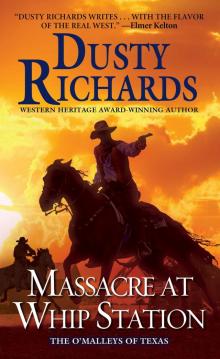 Massacre at Whip Station
Massacre at Whip Station Blue Roan Colt
Blue Roan Colt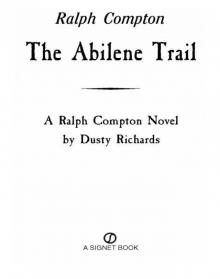 The Abilene Trail
The Abilene Trail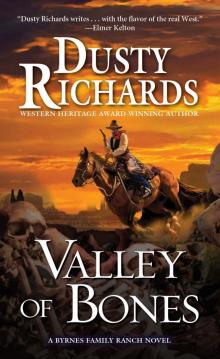 Valley of Bones
Valley of Bones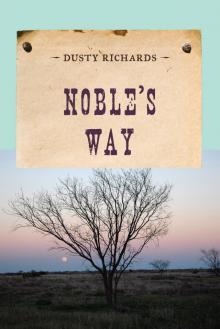 Noble's Way
Noble's Way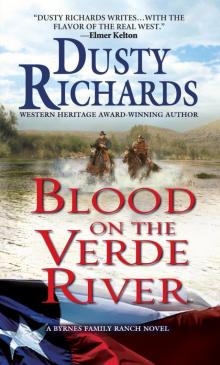 Blood on the Verde River
Blood on the Verde River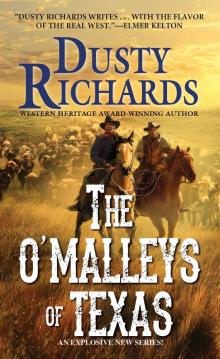 The O'Malleys of Texas
The O'Malleys of Texas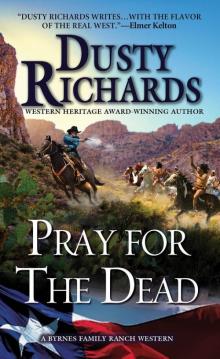 Pray for the Dead
Pray for the Dead Arizona Territory
Arizona Territory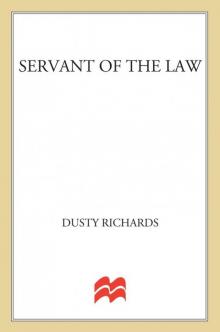 Servant of the Law
Servant of the Law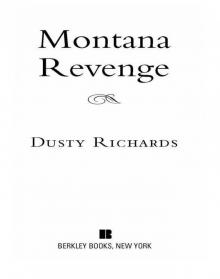 Montana Revenge
Montana Revenge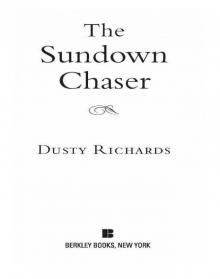 The Sundown Chaser
The Sundown Chaser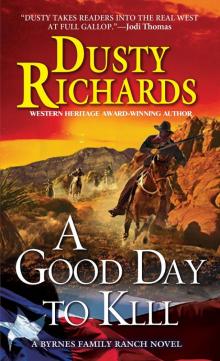 A Good Day To Kill
A Good Day To Kill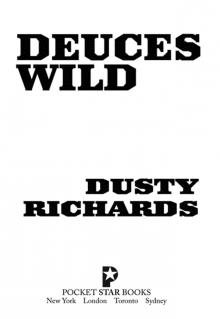 Deuces Wild
Deuces Wild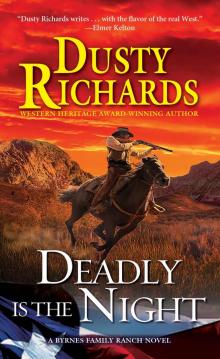 Deadly Is the Night
Deadly Is the Night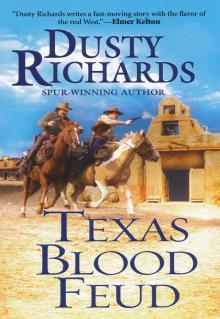 Texas Blood Feud
Texas Blood Feud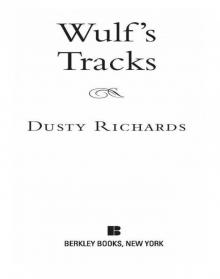 Wulf's Tracks
Wulf's Tracks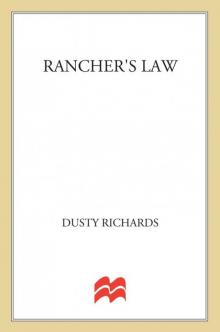 Rancher's Law
Rancher's Law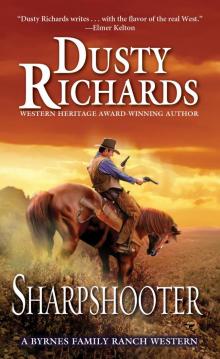 Sharpshooter
Sharpshooter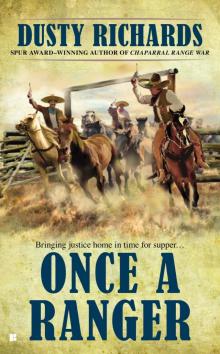 Once a Ranger
Once a Ranger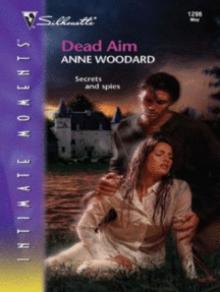 Dead Aim
Dead Aim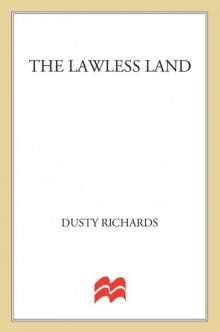 Lawless Land
Lawless Land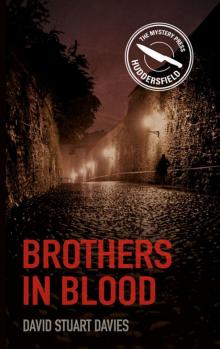 Brothers in Blood
Brothers in Blood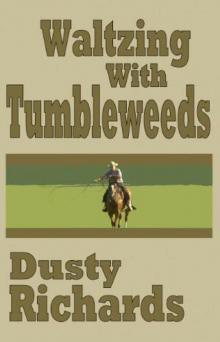 Waltzing With Tumbleweeds
Waltzing With Tumbleweeds